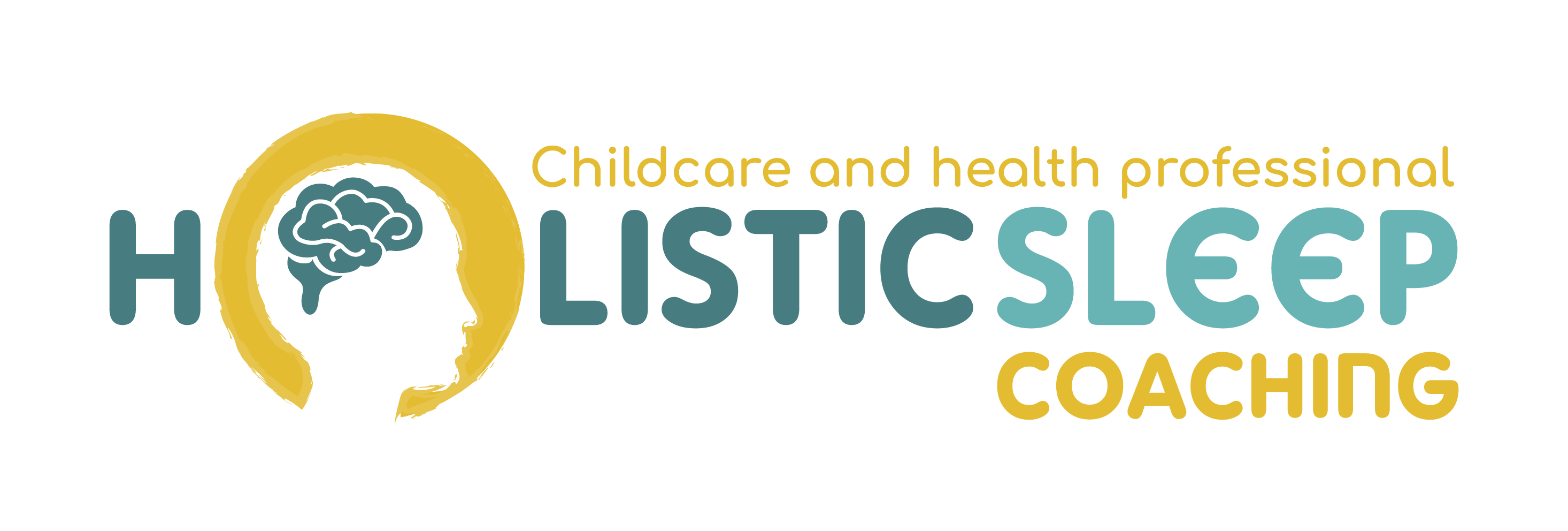I’m going to talk about a topic that is both widely misunderstood and hotly debated. It causes a significant amount of anxiety for parents and is a major part of mainstream sleep training culture. This issue is often perceived as the cause of multiple night wakings, difficulty settling, early rising, and fussing. Interestingly, you won’t find a single research article on it, yet it’s widely accepted as fact. It’s something that I work hard to debunk almost weekly. Have you guessed yet? It’s the concept of overtiredness.
I will discuss what people mean by overtiredness, why being extremely tired isn’t the cause of settling and sleep problems, how we should reframe our understanding of fatigue, and the likely real reason little ones don’t settle. I’ll explain why overtiredness is overrated and how we can approach sleep in a more effective way.
If you prefer a more visual explanation, feel free to check out the accompanying YouTube video on this topic.
What Does it Mean to Be An Overtired Child?
On a really simple level, this could just mean a baby that is extremely tired. Using this simple definition, it’s pretty indisputable that this is a thing. We’ve all seen children who are chronically overtired to the point that they’re falling apart. They’re losing it, bursting into tears, clearly not enjoying life, and can be quite challenging to be around.

In fact, it’s not just children who can feel like this, is it? I’d be willing to bet that most adults have, at least once in their life, felt this way too. I know that if I don’t sleep well, or if something randomly wakes me in the night and deprives me of sleep, I can feel fuzzy-headed and subjectively tired, but I also become more irritable, pessimistic, and short-fused.
Now, if you want to call this state overtiredness, there’s nothing fundamentally wrong with that. Perhaps it’s just a term that tries to convey a state of fatigue that isn’t completely described by the word ‘tired.’ We mean ridiculously tired. Urgently in need of a better night’s sleep.
However, the problem arises when people begin to apply mixed aspects of sleep biology to this state, which ends up confusing the issue. They start to blame this state of excessive fatigue on various sleep patterns, and that’s where it becomes problematic.
Let’s start by looking at what excessive fatigue does. I need to caveat this by saying that this has not been studied in children at all. That’s due to ethical considerations—as you might imagine, it’s not ethical to test the effect of sleep deprivation on children who cannot give informed consent. The only research we have related to sleep deprivation in children is not experimental—so it’s much harder to unpick correlation from causation because the factors surrounding sleep were not controlled for.
Effects of Sleep Deprivation on Sleep Architecture
We know that children with underlying sleep pathology, for example, tend to perform more poorly on cognitive tests, but we don’t have sleep data from those nights of deprivation, because that would have required advanced knowledge of the sleep problem before it even occurred. So we can only defer to adult studies where the subjects have their sleep manipulated in a controlled way, enabling researchers to study the effect of sleep deprivation on sleep stages and patterns.
In those adult studies, such as one by Elmenhorst and colleagues in 2008, sleep deprivation causes a few specific changes to sleep architecture:
- It reduces the time taken to fall asleep. In the real world, that might play out as a child crashing out, and falling asleep much faster than usual.
- It reduces the amount of light sleep. The brain prioritizes deep sleep and shortens or eliminates light non-REM.
- It increases the amount of REM sleep. In children, it’s possible that this might lead to a child who is more easily rousable if they’re disturbed by vivid dreams.
- The effects of sleep deprivation accumulate, but sleep patterns quickly return to baseline after 1-2 nights of recovery sleep.
So sleep deprivation definitely does alter sleep architecture. But in the mainstream child sleep world, sleep deprivation or excessive fatigue is blamed for many other things as well. So what’s going on?
Excessive overtiredness in children does not inhibit sleep
Let’s start with the often-claimed idea that overtiredness leads to a child not being able to fall asleep. When little ones get really tired, do they sometimes struggle to fall asleep? Anecdotally, yes. But why? I’ll give you a clue—it’s not the fatigue.
Let’s get to the key point: overtiredness, or excessive fatigue, does not prevent people from falling asleep. But if excessive fatigue does not prevent people from falling asleep, why do so many people report this as a problem? Well—two reasons:
Dysregulation, not overtiredness, makes sleep harder
Sleep occurs in the parasympathetic nervous system state—this is your rest and digest state. You have to be calm and relaxed in order to fall asleep. If a child is rattled or upset in any way, for any reason, sleep will be harder. Is the penny beginning to drop? You might have realized that fatigue affects people in different ways. Some people can tolerate higher levels of sleep pressure before they begin to fall apart.
So, the children who need more sleep, or are perhaps MORE fatigued, or for whom there are other things stressing them out, or are naturally more sensitive, may have a harder time getting calm when they are excessively tired. The common story of a child who has missed their nap, woke up early, or is late for bed and is now falling apart and too strung out to fall asleep will often be blamed on ‘overtiredness’. It isn’t the fatigue that prevents sleep; it’s the dysregulation. You can’t sleep with your foot on the gas pedal.
Addressing the Wake Maintenance Zone
There’s a natural period of alertness before sleep time, called the wake maintenance zone. This is normal and is usually associated in children with a period of playfulness, excess energy, or heightened activity. Basically, they get the zoomies. But this has nothing to do with fatigue. It’s just that when people erroneously use the overtiredness narrative, alongside an inappropriately early bedtime, it’s like they add 2 and 2 together and get 5. Unpacking this requires an understanding of age-appropriate bedtimes, circadian rhythms, and the interplay between the circadian rhythm and homeostatic sleep pressure.
What DOES excessive overtiredness in children do?
Going back to homeostatic sleep pressure, this involves the buildup of a neurotransmitter called adenosine, a by-product of metabolism. Your metabolic rate, which is higher during the daytime while you’re awake, influences the production of adenosine. Essentially, as your body stays awake and busy with all its functions, it produces adenosine. Your metabolic rate is affected by factors such as how active you are, your size, and what you’ve eaten—for example, your metabolic rate increases more when you eat protein than when you consume carbs and fats.
Thus, there are various factors that might influence how quickly adenosine accumulates. Some research by Wiehler and colleagues in 2022 suggests that increased cognitive demands (or more learning) lead to greater cognitive fatigue. So, when little ones are learning or developing new skills, they may appear more tired on some days than others, or go through phases of needing more sleep. On the other hand, a lot of learning and development can be unsettling, so we need to consider our old friend’s dysregulation here.
Hopefully, you’re beginning to see that there are many related factors, nuances, and complexities with fatigue and regulation!
In general, the higher the level of adenosine, the stronger the drive to fall asleep. So, excessive overtiredness in children does not them from falling asleep. In fact, it makes little ones need more sleep, appear sleepier, and fall asleep faster.
I can almost hear you asking about waking at night, though some parents anecdotally find that if their child is really tired, they wake up more often. I’d be the last person to disregard a parent’s lived experience here. But it’s likely that if this pattern occurs, it’s related to dysregulation, not high sleep pressure. When dysregulated, children need their parents more and maybe more unsettled. You know yourself that if you’ve had a cranky day, or go to bed after something stressful has happened, this can affect the quality of your sleep.



Understanding the complex biology of sleep here is important because, without this knowledge, it’s easy to fall into the trap of mainstream sleep training advice—which often suggests trying an earlier bedtime or prolonging naps. But not only can this be really difficult to achieve, especially for children with lower sleep needs, but it can also directly sabotage sleep. If you try to put a child to bed during the wake maintenance zone, they will find it extremely difficult to fall asleep. Then, the mainstream sleep narrative will likely suggest that this is due to overtiredness and that the solution is an even earlier bedtime, which will obviously make the situation worse.
Conclusion: Reframing Overtiredness
There’s only so much sleep you can achieve, and sleep deprivation also interacts with your circadian rhythm. In a study by Reichert and colleagues in 2017, they explored the effects of sleep deprivation and sleep timings on sleep efficiency, among many other variables. This study found that naps positioned too close to bedtime result in inefficient sleep (i.e., a really long and protracted bedtime), irrespective of sleep deprivation, because of the strength of the circadian signaling.
Therefore, early bedtimes and longer naps are not necessarily the answer. Focusing on calmness and having a deep understanding of sleep biology is what will help finesse bedtimes, naps, and nights. This is how you level up your responsive sleep work with families.

